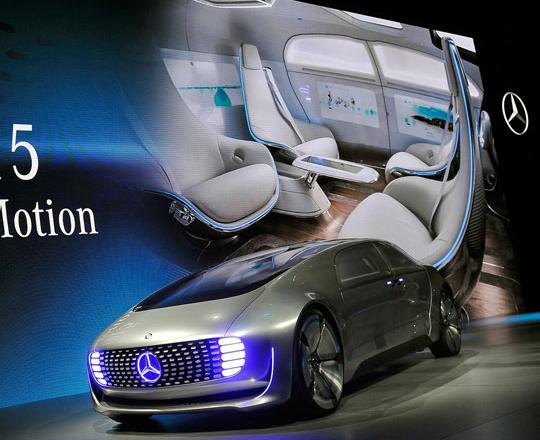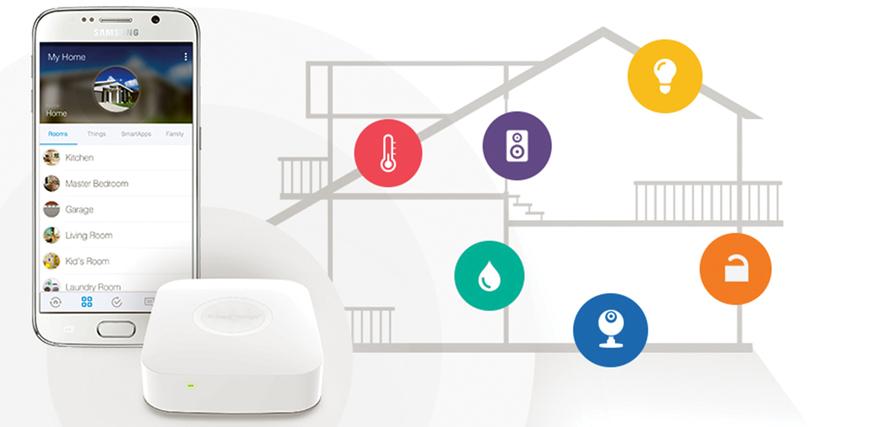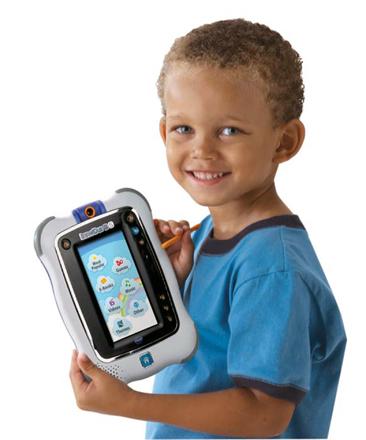You are here
Internet of Things will transform life as we know it
Nov 15,2014 - Last updated at Nov 15,2014

By Steve Johnson
San Jose Mercury News (MCT)
It will help you avoid traffic jams as you travel from work to that hot new spot you’ve been dying to try out, tell you on the way about the bar’s half-price coupons and let you check your home video monitors while knocking back a few to see if your cat is clawing the couch again.
But it also might alert your insurer if your car is weaving when you head home and report your frequent drinking to your boss.
“It” is the Internet of Things, which promises to transform daily life, making it easier to work, travel, shop and stay healthy. Thanks to billions of connected devices — from smart toothbrushes and thermostats to commercial drones and robotic companions for the elderly — it also will end up gathering vast amounts of data that could provide insights about our sexual habits, religious beliefs, political leanings and other highly personal aspects of our lives. That creates a potentially enormous threat to our privacy — even within the sanctuary of our homes.
“These are incredibly convenient devices,” said University of Colorado law professor Scott Peppet, who has extensively researched the Internet of Things. “They are magical.”
Nonetheless, he added, “I don’t think we’re being overly reactive to say, ‘Wait a minute, what are the constraints on using that information? I just want to know what you are going to do with my data.’ “
Just what happens to the data spewed out by all these interlinked machines is a deep concern shared by many security researchers, legal authorities, government officials and consumer advocates. They fear the information could be used to skew our credit ratings, jack up our insurance rates, help hackers steal our money, or enable spy agencies to compile detailed dossiers on each of us. Moreover, they say, this vast sea of data could be misused to put a high-tech twist on the age-old curse of discrimination, with unscrupulous landlords or employers excluding people based on the data they’ve secretly acquired.
The technology is quickly becoming reality, with scores of helpful smart devices already on the market, including some from Bay Area companies.
Sensors from San Francisco-based Lively alert relatives when an older family member fails to take medicine, eat or return home from a walk. Nest thermostats from Google in Mountain View, California, learn and automatically adjust to how warm or cool their owners want their houses. Mobile robots from Suitable Technologies of Palo Alto, California, feature screens that let people video conference from various locations. And dog owners can remotely check on what their pooches are doing with a smart collar by Whistle of San Francisco.
Among other advantages, the devices are widely expected to improve public health by keeping patients in closer touch with doctors, reduce highway deaths by automatically braking vehicles to avoid crashes, boost food supplies by helping farmers tend their crops, and quickly notify authorities about environmental mishaps. When the nonprofit Pew Research Centre queried more than 1,600 experts on the subject, 83 per cent predicted the Internet of Things will “have widespread and beneficial effects on the everyday lives of the public by 2025”.
Yet, with devices from cars to refrigerators to coffee pots recording everything we do and transmitting the information to others, many people may find the technology unnerving.
“The idea that when I’m in my house or on my property or in my car, I’m somehow in a surveillance-free zone — no, it’s not true,” said Electronic Frontier Foundation attorney Lee Tien. “We’re seeing just a tremendous explosion of surveillance.”
Although people already reveal much about themselves through their Internet searches and social media posts, that’s nothing compared with the trove of personal data likely to be disclosed by the Internet of Things.
Even when designed for limited functions, experts say, many of these Web-linked gadgets will record whatever they see and hear in homes, which could provide detailed dossiers on the people living there, especially when combined with what’s amassed by other interconnected machines. The personal data revealed could include everything from your friends, hobbies and daily routines to your political views, religious affiliation and even your sexual activities.
Your politics might be disclosed if you routinely watch like-minded programmes on your Web-connected TV and use your personal robot’s videoconferencing capabilities for online meetings with a group that shares your views. And if you’ve declared your political allegiance in private comments, your voice-activated gadgets might have picked those up and stored them as text on the Internet.
Your religious orientation, on the other hand, might be divulged by your Internet-linked refrigerator. Because those appliances are expected to become so smart they’ll automatically order more eggs, beer or other items for you when supplies run low, yours might signal that you’re Jewish, for example, if it frequently gets you kosher food.
Still other gadgets might put your love life on display if, for instance, you pick up someone you meet at that new bar after work.
That’s conceivable if your home security camera tapes the two of you undressing and its face-recognition software determines your date is a prominent local official, while your wearable fitness device calculates from the calories you proceed to burn that you must be having sex. Disclosing those details could prove embarrassing, especially if you’re both married. It could be even more so if your wireless health monitor a week later fires off an alert to your doctor that you’ve just contracted a sexually transmitted disease.
So how could others see that personal information?
Much of it is expected to flow directly from the gadgets to the businesses that made them. Legal experts say federal and state laws poorly regulate how the information can be used, and the companies already selling smart gadgets often are vague about what they do with the data or whether they sell it to others. Consequently, it’s possible someone’s personal details could bounce around the Internet and be accessed by countless people.
Such firms often say they “de-identify” the data so it can’t be attributed to individuals. Yet researchers have found it’s frequently possible to “re-identify” data by combining it with other available facts. As a result, a White House report in May concluded that data re-identification “creates substantial uncertainty” about peoples’ ability to control their personal information.
That raises another red flag for the administration and experts in the field. The White House study warns that the growing deluge of data could result in “discriminatory outcomes for disadvantaged groups”.
It’s illegal to discriminate against anyone based on their race, colour, religion, national origin or sex. But given the uncertainty about who might see the information disgorged by these smart gadgets, it’s widely feared the data might be used to treat people unfairly without their knowledge. For example, experts say, a person might get turned down for an apartment if their devices reveal their sexual or religious orientation to a disapproving landlord.
It’s also conceivable employers might refuse to hire someone after learning from a medical or fitness gadgets that they’ve got a health problem, said Rebecca Herold, a privacy consultant and adjunct professor at Norwich University in Vermont.
Related Articles
Imagine a world in which your garage door opens automatically as you pull into the driveway. The living room lights and heater turn on — perhaps the oven starts warming up, too. In the so-called “smart home”, cars, appliances and other devices all have sensors and Internet connectivity to think and act for themselves, and make your life easier.
LAS VEGAS — The battle to be at the centre of your digital life has taken on a new dimension amid a proliferation of connected devices.After
Our cars, our homes, our appliances and even our toys: Things around us are going to keep getting smarter.


















